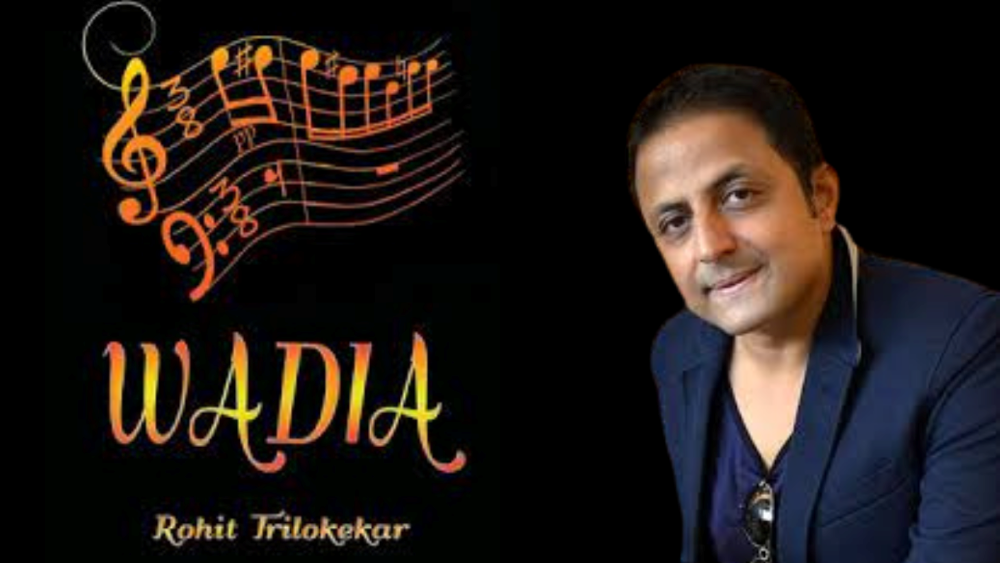
The strengths of this novel lie in its lively representation of the friendships among Mumbai’s residents of diverse faiths
By Lopamudra Basu
Friendship and Adventure
Rohit Trilokekar is a Mumbai-based columnist for The Telegraph newspaper and a novelist. Wadia, his latest novel focuses on themes of friendship and adventures embarked on by friends, themes that have featured in his previous novels.
Wadia focuses on the life of its eponymous protagonist, a middle-aged Parsee gentleman living in an old mansion in Mumbai, who in the twilight of his life is curious about his family genealogy and seeks to unearth some hidden family secrets. Wadia seems to represent a vanishing world of old Bombay that Trilokekar imbues with a certain nostalgia. This is a world of colonial buildings, afternoon outings at the Willingdon Club, the leisurely practice of piano and listening to classical records, dinners, and lunches with close friends, and the reliable work of long-serving domestic help.
A quest for family history
Although Wadia is single and has lost his parents his world seems to be secure in these moorings and the friendship with the Marathi couple Anil and Vidya Velkar. However, the gentle social comedy of the friendship between these two retired men quickly changes as Wadia becomes obsessed with his family history and finds out more about his grandfather’s life. There is also the mystery of his strange musical life, his mastery of the piece Fuhr Elise but the decision of his father to stop his musical career and get rid of a beautiful piano.

The quest to find out more about his grandfather brings Rustom Wadia in contact with Toral Shah and the secrets of a long-ago forbidden romance leading to the birth of a child out of wedlock. From a comedy of social manners, the novel morphs into the genre of detective fiction as Wadia, Velkar, and Toral embark on a journey to find out the whereabouts of the abandoned love child of Wadia’s grandfather.
They discover that the girl had been abandoned by her family because of a profound disability. This long-forgotten relative of Wadia was named Elise, and she was a source of multiple layers of ostracism and stigma, first for her status as a child born out of wedlock and then her status as a disabled person.
A secret love-child
The trio travels to Udvada, a holy site for Parsees in Gujarat to excavate the history of Elise’s life. Upon interviewing residents of the town, they eventually uncovered the fact that she had faced even more egregious violations in that town. The novel tantalizes readers with the possibility of uncovering the truth behind a forgotten and unsolved crime, but that hope of justice quickly dissipates. The only closure the group has on this journey is the discovery that after the disastrous experience in Udvada, Elise had been adopted by a family who had restored her to at least a measure of peace. During the journey, Velkar becomes close to the young woman Toral and decides to adopt her at least informally as a daughter he and his wife have never had.
Upon their return, Wadia discovers a mysterious photo stuck to the piano he had miraculously rediscovered in an antique shop the one he had owned in his childhood, which had been removed by his father. At this point, the novel adopts some conventions of a ghost story, and it seems that the spirit of Elise had been hovering in the house in Mumbai, all while Wadia and his friends had been chasing her in Udvada.
Diverse friends and faiths
The strengths of this novel lie in its lively representation of the friendly interactions between Wadia, Velkar, Toral, and Vidya, and its presentation of community and care among Mumbai’s residents of diverse faiths. The characters of Wadia, Velkar, and Toral are vibrant in their zest for life and human foibles. However, the novel is over-ambitious in trying to solve a crime that happened fifty years ago and after building readerly expectations it does not succeed in shedding light on the crime’s perpetrators.
At this stage, the novel once again changes genre conventions and attempts to present a ghost story. However, it does not succeed in this genre and reverts at the end to social comedy evoking the possibility of a new romance for Rustom Wadia, late in his life with a woman he had met during his visit to Udvada.
A question of genre
I think the author’s strength lies in comedy and the novel would have been more impactful if it had been restricted to the exploration of friendship and middle-aged identity in Mumbai, instead of attempting multiple genres and taking on complex social issues like illegitimacy, disability, stigma, and ostracism. While these are all very important themes, since they affect an older generation of the family, they do not arouse empathy in the same way as issues affecting the living characters in the novel.
The most memorable part of the novel is the character of Wadia, his life of simplicity and contentment, and we could have remembered him even without his detective and supernatural adventures.
__________________
Courtesy: India Currents (Posted on December 8, 2023)